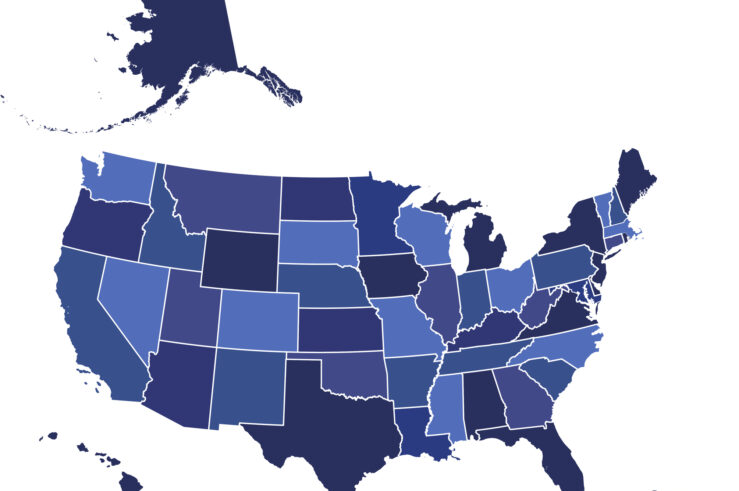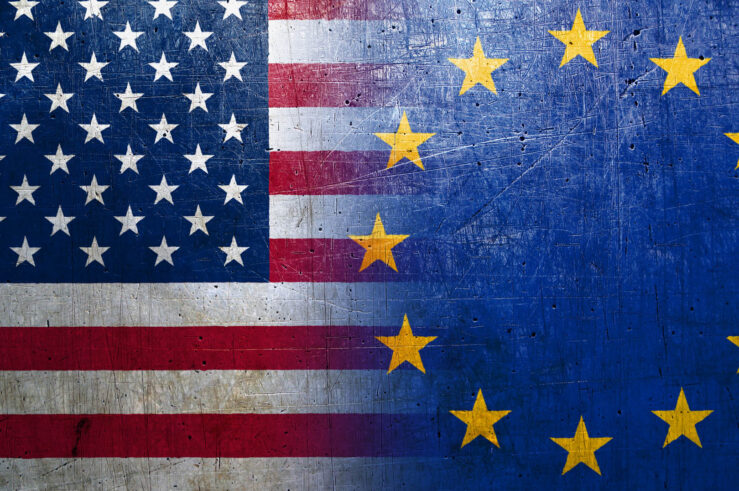Showing archive for: “Collusion & Cartels”
Antitrust Policy and National Security Interests
U.S. antitrust policy seeks to promote vigorous marketplace competition in order to enhance consumer welfare. For more than four decades, mainstream antitrust enforcers have taken their cue from the U.S. Supreme Court’s statement in Reiter v. Sonotone (1979) that antitrust is “a consumer welfare prescription.” Recent suggestions (see here and here) by new Biden administration ... Antitrust Policy and National Security Interests
Political Philosophy, Competition, and Competition Law: The Road to and from Neoliberalism, Part 2
In just over a century since its dawn, liberalism had reshaped much of the world along the lines of individualism, free markets, private property, contract, trade, and competition. A modest laissez-faire political philosophy that had begun to germinate in the minds of French Physiocrats in the early 18th century had, scarcely 150 years later, inspired ... Political Philosophy, Competition, and Competition Law: The Road to and from Neoliberalism, Part 2
Crusade Against ‘Big Meat’ Is Latest Example of Misguided Effort to Use Antitrust as Anti-Inflation Tool
As a new year dawns, the Biden administration remains fixated on illogical, counterproductive “big is bad” nostrums. Noted economist and former Clinton Treasury Secretary Larry Summers correctly stressed recently that using antitrust to fight inflation represents “science denial,” tweeting that: There is no basis in economics for expecting increases in demand to systematically larger price ... Crusade Against ‘Big Meat’ Is Latest Example of Misguided Effort to Use Antitrust as Anti-Inflation Tool
What is the Appropriate Role for State Antitrust Enforcement?
In the U.S. system of dual federal and state sovereigns, a normative analysis reveals principles that could guide state antitrust-enforcement priorities, to promote complementarity in federal and state antitrust policy, and thereby advance consumer welfare. Discussion Positive analysis reveals that state antitrust enforcement is a firmly entrenched feature of American antitrust policy. The U.S. Supreme ... What is the Appropriate Role for State Antitrust Enforcement?
How US and EU Competition Law Differ
U.S. and European competition laws diverge in numerous ways that have important real-world effects. Understanding these differences is vital, particularly as lawmakers in the United States, and the rest of the world, consider adopting a more “European” approach to competition. In broad terms, the European approach is more centralized and political. The European Commission’s Directorate ... How US and EU Competition Law Differ
The Supreme Court Misses the Big Consumer Welfare Picture in NCAA v. Alston
In its June 21 opinion in NCAA v. Alston, a unanimous U.S. Supreme Court affirmed the 9th U.S. Circuit Court of Appeals and thereby upheld a district court injunction finding unlawful certain National Collegiate Athletic Association (NCAA) rules limiting the education-related benefits schools may make available to student athletes. The decision will come as no ... The Supreme Court Misses the Big Consumer Welfare Picture in NCAA v. Alston
The Globalization of Antitrust: A Cost-Benefit Appraisal
Overview Virtually all countries in the world have adopted competition laws over the last three decades. In a recent Mercatus Foundation Research Paper, I argue that the spread of these laws has benefits and risks. The abstract of my Paper states: The United States stood virtually alone when it enacted its first antitrust statute in ... The Globalization of Antitrust: A Cost-Benefit Appraisal
The Future of FTC Equitable Monetary Relief after AMG Capital Management
The U.S. Supreme Court’s just-published unanimous decision in AMG Capital Management LLC v. FTC—holding that Section 13(b) of the Federal Trade Commission Act does not authorize the commission to obtain court-ordered equitable monetary relief (such as restitution or disgorgement)—is not surprising. Moreover, by dissipating the cloud of litigation uncertainty that has surrounded the FTC’s recent ... The Future of FTC Equitable Monetary Relief after AMG Capital Management
Congress Should Not Legalize a News Media Cartel
Amazingly enough, at a time when legislative proposals for new antitrust restrictions are rapidly multiplying—see the Competition and Antitrust Law Enforcement Reform Act (CALERA), for example—Congress simultaneously is seriously considering granting antitrust immunity to a price-fixing cartel among members of the newsmedia. This would thereby authorize what the late Justice Antonin Scalia termed “the supreme ... Congress Should Not Legalize a News Media Cartel
Cooperation, Competition, and COVID-19
Cooperation is the basis of productivity. The war of all against all is not a good model for any economy. Who said it—a rose-emoji Twitter Marxist, or a card-carrying member of the laissez faire Chicago School of economics? If you guessed the latter, you’d be right. Frank Easterbrook penned these words in an antitrust ... Cooperation, Competition, and COVID-19
There is No Cure for Government Incompetence
The pandemic is serious. COVID-19 will overwhelm our hospitals. It might break our entire healthcare system. To keep the number of deaths in the low hundreds of thousands, a study from Imperial College London finds, we will have to shutter much of our economy for months. Small wonder the markets have lost a third of ... There is No Cure for Government Incompetence
Is it time for a new approach to generic drugs?
We don’t yet know how bad the coronavirus outbreak will be in America. But we do know that the virus is likely to have a major impact on Americans’ access to medication. Currently, 80% of the active ingredients found in the drugs Americans take are made in China, and the virus has disrupted China’s ability ... Is it time for a new approach to generic drugs?














